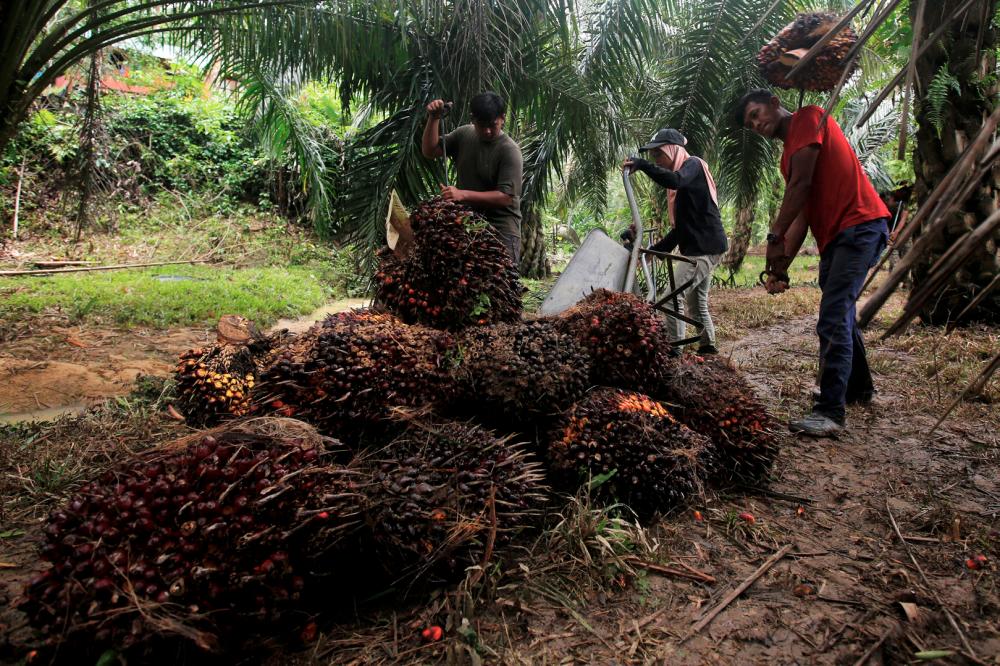PUTRAJAYA: In the face of threats that the United States and the European Union will impose sanctions on palm oil, Malaysia is looking to develop new markets for the commodity.
The effort will begin with the consolidation of the various agencies dealing with the cultivation, promotion and export of the commodity.
At the same time, Malaysia will launch a drive to promote palm oil to West Asia and the Middle East as well as the central Asian republics and South Asia, Plantation Industry and Commodities Minister Datuk Zuraida Kamaruddin told theSun.
For a start, she said, the Malaysian Palm Oil Board, the Malaysian Palm Oil Council and the Malaysian Palm Oil Certification Council will be brought under one roof.
“This will ensure that each agency is aware of what the others are doing, thus preventing duplication of work. This will also help us to cut costs,” she said.”
Zuraida clarified to theSun that “bringing the agencies under one roof” was misunderstood.
“The three agencies - MPOB, MPOC and MPOCC should work together.
“This way, it will avoid any duplication of work, save time and of course, money. It has always been the ministry’s aim to do our best to help the rakyat and never to waste taxpayer’s money, hence the idea is to place these agencies under one roof,“ she said.
Zuraida said the three agencies can then work together to develop new markets.
“For instance, palm oil is more than just for cooking. It is also an ingredient for many other products,” she pointed out.
Among others, items such as lipstick, instant noodles, shampoo, detergents and soap contain palm oil. “We must exploit this quality of palm oil to market it to every country,” she added.
Zuraida said that in response to Malaysia’s efforts to promote palm oil, Turkey and Saudi Arabia have already raised their imports of the commodity.
Last year, Turkey imported 703,588 tonnes of palm oil while the Saudis have committed to raise their imports to 500,000 tonnes, valued at RM1.5 billion, this year.
The Saudi government has also struck a deal with Malaysia to build a storage terminal in Jeddah that will serve as a hub from which palm oil will be re-exported. Both countries have also agreed to jointly promote the benefits of palm oil around the world.
Malaysia has set up the Commodity Integrated Marketing Company (CIMC) to serve as its regional agri-commodity office in Jeddah. This is part of an effort to penetrate the global market.
“The CIMC is an especially important part of the effort to help market Malaysian commodities in the Middle East and North Africa markets,” she said.
In 2020, Malaysia’s exports of palm oil to these regions were valued at US$2.37 billion (RM9.93 billion). In the same year, Malaysia exported US$535 million worth of rubber and rubber-related products as well as US$324.5 million worth of timber and timber products to the same regions.
Malaysia is also eyeing markets in China as well as the South Asian markets such as Afghanistan, Bangladesh, Bhutan, India, the Maldives, Nepal, Pakistan and Sri Lanka.
These are major consumers of edible oils.
“We need to make deeper inroads into these countries to promote palm oil. We must create a demand for our products in these countries by highlighting the benefits of palm oil and its multiple uses,” Zuraida said.
She said this was part of an effort to help Malaysia regain its number one spot as a palm oil producer while staving off the effects of any sanctions that the United States and the European Union may imposed.
She claimed that these countries were simply “jealous” because palm oil had more health benefits than other edible oils. “They know that they cannot compete with us so they are putting sanctions to disrupt our palm oil production.”
The price of crude palm oil hit an all-time high of RM5,750 per tonne for two consecutive days on Feb 3 and Feb 4.









